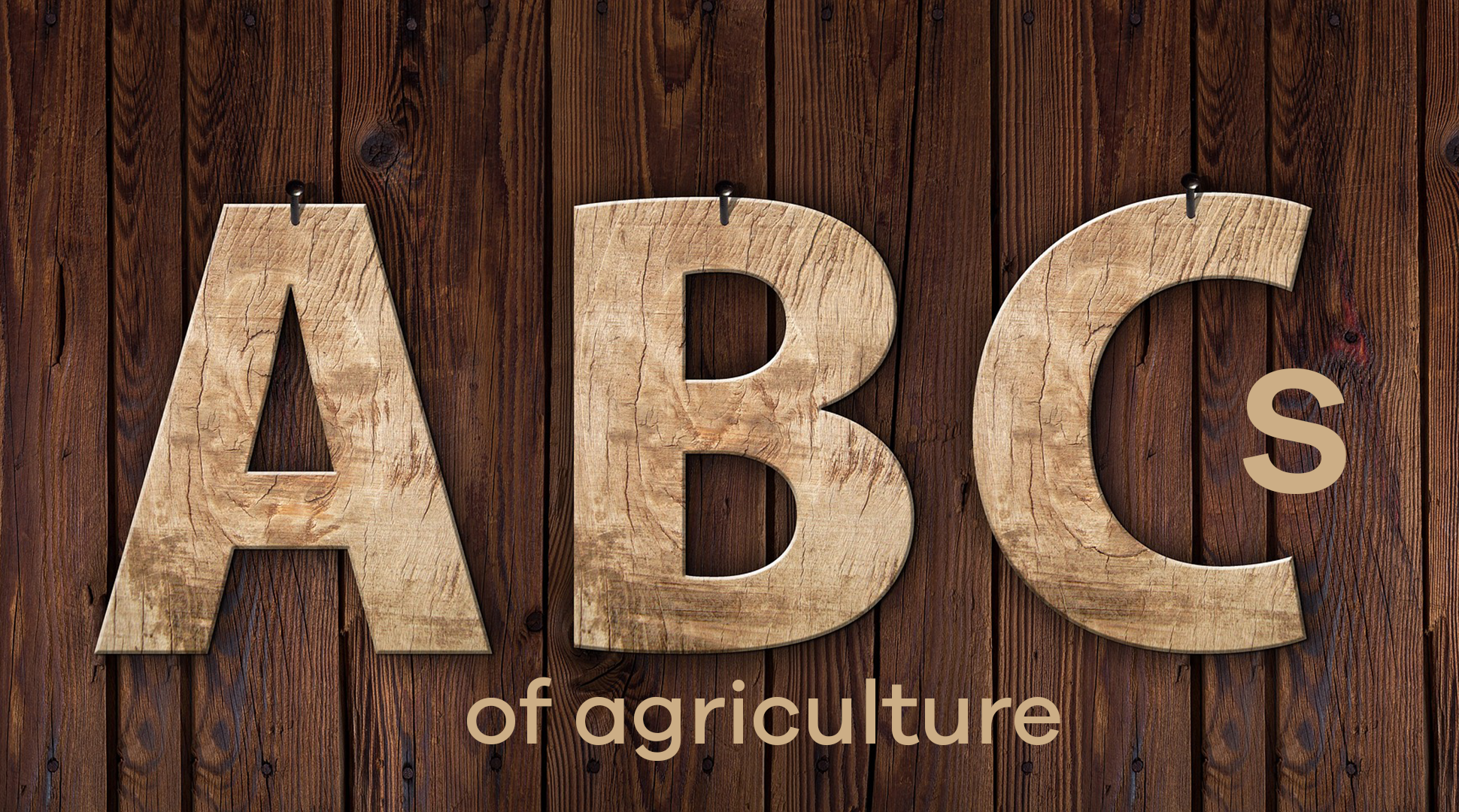When you hear a farmer say they have a farm operation, do you picture a farmer in scrubs, taking care of some a plant or animal? Farmers and ranchers often talk about "their operation," but people who aren't farmers or ranchers don't use the word farm and operation in the same sentence, so it can be pretty confusing. Every business type seems to have its own slang or frequently used words that don't necessarily make sense to someone not in the business. Farms and ranches are no different.
We thought it would be futo share some of the words farmers and ranchers use that the rest of us might not be completely sure about. So without further ado, a glossary of farm related terms, from A to Z
Animal Unit: A measurement of livestock, the equivalent of one mature cow weighing 1,000 lbs.
Broiler: A chicken of either sex about 7 weeks of age.
Carrying Capacity: The number of animals that a pasture can properly carry or feed for a certain period.
Drainage tile: Pipe, more often than not PVC pipe, installed underground for the removal of excess water from within the soil.
Eartag: A metal or plastic tag fastened to the ear of an animal for the purpose of identification.
Forage: Plants used for feed by livestock.
GMO: Genetically Modified Organism is a plant, animal or microbe in which one or more changes have been made to the genome, typically using high-tech genetic engineering, to alter the characteristics of an organism.
Heifer: Young female of the cattle species that has not borne a calf.
Intercropping: The cultivation of more than one crop in the same field.
Jack: A male ass bred to mares to produce mules
Ketosis: A condition of abnormally high concneration of acetone bodies in the body tissues and fluid.
Layer: A female chicken producing eggs regularly
Mastitis: A disease of the cow's udder resulting from infection by microorganisms.
Nitrogen Cycle: The sequence undergone by nitrogen in its movement form the atmosphere into and through soils, into the plants and eventually back to the atmosphere.
Open: In breeding stock, an animal that is not pregnant.
Power Take-off: A shaft on a tractor that transmits power to an implement. PTO shaft speeds are typically 1,000 revolutions per minute.
Quern: Okay, so NOBODY uses this word in modern ag because a quern was a simple stone mill for grinding grain into flour. It's hard to find a Q in ag these day unless you are talking about quality. But everyone knows what that means, although in agriculture, it is very, very important. In fact, if the products grown or raised on a farm aren't of the highest QUALITY, they don't make it into the food chain. So there's that!
Rooster: An adult male chicken.
Sow: Mature female hog.
Tack: Equipment ued in riding and driving horses.
U have to admit this is another difficult one. (See what I did there?) But the most obvious choice is "udder" even though most people probably know that the udder is the mammary gland of female cattle or other animals in which there is more than one teat per mammary gland.
Vertical Integration: Combining two or more successive steps in the production, processing and distribution of a product under a single decision-making body: A canner that owns some of its own raw product, a feed company that owns poultry.
Windrow: Hay or forage raked into rows to cure
Xylem: The vascular tissue in plants that conducts water and dissolved nutrients upward from the root and also helps to form the woody element in the stem.
Yolk: Not only the yellow part of an egg, but also lanolin and other fats secreted which show up as grease in wool from sheep.
Zoonoses: Pathogenic infectious diseases that can be transmitted between vertebrate animals and man.
What are some words farm-related words that you have always wondered about? Share them with us at onyourtable@ndfb.org.
